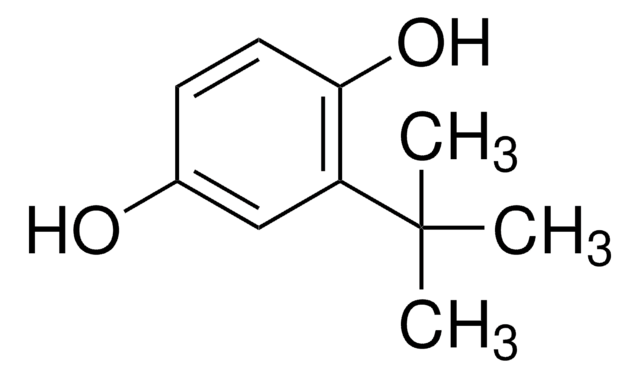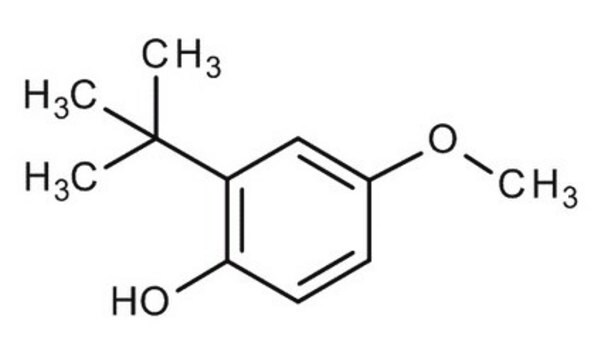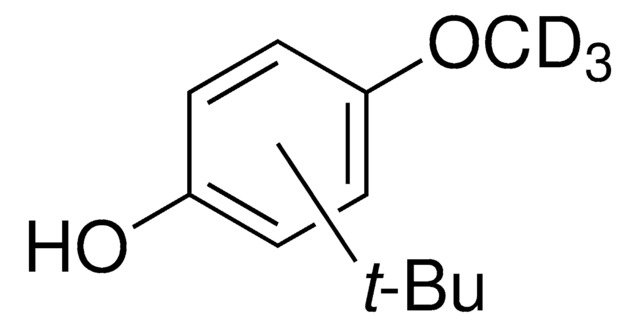B1253
Butylated hydroxyanisole
≥98.5%
Synonym(s):
2(3)-t-Butyl-4-hydroxyanisole, 2(3)-t-Butylhydroquinone monomethyl ether, BHA
About This Item
Recommended Products
vapor density
6.2 (vs air)
Quality Level
Assay
≥98.5%
form
powder
autoignition temp.
599 °F
mp
58-60 °C (lit.)
InChI
1S/C11H16O2/c1-11(2,3)9-7-8(13-4)5-6-10(9)12/h5-7,12H,1-4H3
InChI key
MRBKEAMVRSLQPH-UHFFFAOYSA-N
Looking for similar products? Visit Product Comparison Guide
General description
Application
- Antioxidant peptides from silk protein: Research explores the purification of novel antioxidant peptides derived from Bombyx mori pupae, identifying potential antioxidant applications for butylated hydroxyanisole in the food and cosmetic industries (Chukiatsiri et al., 2024).
- Industrial lubricant additive: The performance of olive oil-based blended esters with butylated hydroxyanisole is evaluated, showcasing its efficacy as an industrial lubricant additive and its optimization using response surface methodology (Thangaraj et al., 2024).
- Environmental degradation studies: Investigates the degradation of butylated hydroxyanisole using advanced oxidation processes, providing insights into environmental safety and the compound′s stability in pharmaceutical and industrial applications (Shi et al., 2024).
Other Notes
Hazard Statements
Precautionary Statements
Hazard Classifications
Aquatic Chronic 2
Storage Class Code
11 - Combustible Solids
WGK
WGK 2
Flash Point(F)
241.9 °F - Pensky-Martens closed cup
Flash Point(C)
116.6 °C - Pensky-Martens closed cup
Personal Protective Equipment
Regulatory Listings
Regulatory Listings are mainly provided for chemical products. Only limited information can be provided here for non-chemical products. No entry means none of the components are listed. It is the user’s obligation to ensure the safe and legal use of the product.
ISHL Indicated Name
Substances Subject to be Indicated Names
ISHL Notified Names
Substances Subject to be Notified Names
JAN Code
B1253-5G:
B1253-BULK:
B1253-500G:
B1253-100G:
B1253-VAR:
Choose from one of the most recent versions:
Already Own This Product?
Find documentation for the products that you have recently purchased in the Document Library.
Customers Also Viewed
Our team of scientists has experience in all areas of research including Life Science, Material Science, Chemical Synthesis, Chromatography, Analytical and many others.
Contact Technical Service






